 Un commentaire du Passant1 sur mon précédent billet m’amène à anticiper sur une série de billets que j’avais (vaguement) prévus à partir d’une lecture de Julien Freund. Jusqu’ici, je connaissais seulement de Freund ses textes d’introduction à la sociologie de Max Weber ou de Georg Simmel. La lecture de cette étrange conversation imaginée entre un certain Pierre Bérard2 et Julien Freund m’a donné envie d’en savoir plus sur la sociologie de Freund lui-même. J’ai donc profité de l’été pour lire l’ouvrage majeur de Freund qu’est L’essence du politique (1965), en complétant par une relecture de quelques classiques comme Le savant et le politique de Max Weber, Le Prince de Machiavel, mais aussi Les politiques d’Aristote ou L’histoire de la guerre du Péloponnèse.
Un commentaire du Passant1 sur mon précédent billet m’amène à anticiper sur une série de billets que j’avais (vaguement) prévus à partir d’une lecture de Julien Freund. Jusqu’ici, je connaissais seulement de Freund ses textes d’introduction à la sociologie de Max Weber ou de Georg Simmel. La lecture de cette étrange conversation imaginée entre un certain Pierre Bérard2 et Julien Freund m’a donné envie d’en savoir plus sur la sociologie de Freund lui-même. J’ai donc profité de l’été pour lire l’ouvrage majeur de Freund qu’est L’essence du politique (1965), en complétant par une relecture de quelques classiques comme Le savant et le politique de Max Weber, Le Prince de Machiavel, mais aussi Les politiques d’Aristote ou L’histoire de la guerre du Péloponnèse.
J’en tire ici quelques réflexions ou questions sans grand ordre. Il y aura peut-être ensuite quelques billets plus systématiques.
Le Passant, dans son commentaire, réagit à la conclusion de mon précédent billet sur la nécessité affirmée par Freund d’éviter tant la moralisation de la politique que la politisation de la morale. Il affirme au contraire que la politique serait par définition une moralisation du politique. Il s’agirait moins de mettre en œuvre des liens d’appartenance ou de participation que de définir les « bons » liens. J’entends dans cette remarque comme un écho de ce que disait Jean Gagnepain sur l’hégétique, que ses lecteurs entendent très souvent comme une légalisation du légitime, mais qu’il définissait lui-même d’une façon plus complexe et problématique qu’on ne veut bien le dire. La messe, en tous cas, n’est pas dite sur ce sujet !
Il faut d’abord savoir si l’on se place 1° – dans une perspective qui est celle de l’action politique et donc de la justification de telle ou telle décision, de tel ou tel régime, ou de telle ou telle définition de ce que devrait être le politique, de même que le personnel politique, ou 2° – dans la perspective scientifique de la description du phénomène politique, quelles que soient les époques, les institutions ou les régimes. Beaucoup de lectures de ce que Gagnepain dit de l’hégétique me semblent se situer dans la première perspective. Elles regrettent que le personnel politique actuel ne soit pas nécessairement un modèle de vertu et affirment qu’à l’avenir, il devra l’être (mais c’était déjà le propos de Platon dans La République !). On est dans l’éthique de conviction au sens de Max Weber. Dans une perspective normative en tous cas. On n’est pas dans l’analyse de ce qu’est le politique.
Si on se place dans cette deuxième perspective, celle du sociologue, qui se doit d’étudier « froidement » le politique tel qu’il existe (ou la politique telle qu’elle existe — je ne me prononce pas pour l’instant sur la différence entre le et la politique), on peut remarquer que les convictions sur ce qui doit être, sur ce que sont les « bons » liens sociaux, etc. font effectivement partie du politique. Il n’y a pas de politique sans convictions, ni même sans passion, comme l’observait bien Weber. Mais ces convictions ou ces passions sont de toutes sortes. Les uns sont convaincus du caractère néfaste du « capitalisme financier », d’autres dénoncent l’immigration, d’autres encore plaident pour un développement durable ou une écologie politique, etc. Tous sont persuadés que leurs convictions sont les « bonnes » convictions, que les liens ou les associations qu’ils veulent tracer sont les « bons » liens, les « bonnes » associations… Le moins que l’on puisse dire est que la définition de ce qui est « bon » ou « bien » est pour le moins conflictuelle, polémique. Dans la perspective de l’action, comment choisir le bon « bien » ? En retenant le camp le plus vertueux ? Mais comment ? Admettons que l’on arrive à sélectionner le personnel politique (comme on sélectionne sur d’autres critères les pilotes de chasse) pour exclure des fonctions politiques celles ou ceux qui sont carrément malades (névrosés, psychopathes, mais aussi pervers et psychotiques en tout genre, car ce n’est pas plus rassurant). Il ne restera donc que des gens à peu près équilibrés, aussi capables de responsabilité que de vertu. Croit-on vraiment que l’on aura tranché la question du bien ? Non, car il y a sans doute autant de gens capables de responsabilité comme de vertu dans les différents camps et l’on retrouvera les conflits et les polémiques sur ce qui est bon et bien. On peut dire que le choix devra se faire de façon « démocratique ». Mais la démocratie elle même n’est qu’une option parmi d’autres. C’est un argument polémique contre ceux qui sont jugés non démocrates. D’ailleurs, il suffit d’avoir assisté aux blocages d’universités de ces dernières années pour constater qu’il n’y a pas accord d’emblée sur ce qui est démocratique. Chacun utilise l’argument démocratique comme argument dans la polémique et l’on se trouve embarqué dans une lutte de « démocraties » : celle des AG et du vote à main levée contre celle des instances universitaires et des cartes d’étudiant !
Autre chose. L’enfer, dit le proverbe, est pavé de bonnes intentions. C’est ce que redit à sa façon Max Weber en écrivant dans Le savant et le politique :
Il est une chose incontestable, et c’est même un fait fondamental de l’histoire, mais auquel nous ne rendons pas justice aujourd’hui : le résultat final de l’activité politique répond rarement à l’intention primitive de l’acteur. On peut même affirmer qu’en règle générale il n’y répond jamais et que très souvent le rapport entre le résultat final et l’intention originelle est tout simplement paradoxal.
On pense évidemment à l’éthique protestante qui aurait, selon Weber, favorisé l’esprit du capitalisme, bien que cela n’était l’intention ni de Luther ni de Calvin (qui n’avaient, et pour cause, jamais entendu parler de « capitalisme »). Les historiens, sans doute, discutent et discuteront longtemps de cette thèse. Mais on peut sans peine multiplier les exemples. Ainsi de Gaulle croyait léguer à la France, avec la constitution de la Cinquième République, ce qui lui permettrait d’échapper au « régime des partis ». Le résultat semble bien différent. Peut-on d’ailleurs échapper aux « partis » et autres « factions » ? Les guelfes et les gibelins n’étaient-ils pas d’autres « espèces » du genre « parti » ? De même que les frondeurs du milieu de notre XVIIe siècle ?
Le constat sociologique est donc que le politique est le domaine du conflit, de la polémique, éventuellement de la guerre. On peut certes s’accorder, passer convention, faire la paix un temps. Mais le conflit resurgira nécessairement, ici ou ailleurs, sur un sujet ou sur un autre, pour un « bien » ou pour un autre. L’histoire n’est pas seulement l’histoire de la lutte des classes, comme le pensait Marx. Elle est plus généralement l’histoire de la lutte, comme le dit Freund, des classes certes, mais aussi des peuples, des religions, etc. Il n’y a pas de « der des der » ! Il est vrai que certains révolutionnaires ont voulu croire qu’avec une bonne lutte finale (qui, justement parce qu’elle serait finale — la « der des der » — légitimerait pour le coup la pire des violences), on pourrait résoudre le problème une bonne fois pour toutes. C’est le « Français (Russes, etc.) encore un effort… C’est vrai, on s’entretue bien cette fois encore. Mais c’est pour la bonne cause. Après, c’est-à-dire une fois que l’on aura éliminé tous les ci-devant (koulaks, etc.), ce sera fini. Promis. Ce sera l’avenir radieux ».
Mais en réalité, on n’en finit jamais avec le conflit (qui bien sûr, ne va pas toujours jusqu’à la guerre). C’est ce que Freund analyse très bien quand il dit que l’une des trois grandes caractéristiques du politique (l’un des trois « présupposés » dans son vocabulaire), c’est la dialectique ami/ennemi. On trouve cela aussi chez Simmel qui insiste sur le rôle socialisateur du conflit. Le conflit fait lien dans la mesure où l’on s’allie contre un tiers. Gagnepain ne dit pas autre chose quand il rappelle dans Les leçons d’introduction que :
Les Romains par exemple définissaient le civis comme le contraire de l’hostis. C’est parce que l’on avait le même ennemi que l’on devenait concitoyens. On ne se ligue jamais que contre.
On trouve cela en d’autres mots passim dans les chapitres sociologiques du Vouloir Dire. Gagnepain s’inscrit ainsi bien plus dans la tradition de Simmel et de Freund, que du fonctionnalisme de Durkheim. De Weber aussi, qui insistait dans Le savant et le politique sur ce qu’il appelait « le polythéisme des valeurs ».
J’ajouterais que c’est vrai aussi bien de la politique étrangère (voir déjà l’alliance des cités autour d’Athènes contre celle autour de Sparte dans la guerre du Péloponnèse), que de la politique intérieure (où la « gauche » n’existe que dans son opposition à la « droite »), le même processus se reproduisant d’ailleurs à l’intérieur de chaque camp un peu comme une même structure se reproduit dans les fractales aux différentes échelles.
Le filon est riche. Je ne pourrai pas tout dire dans un seul billet. Quelques points pour la suite (dans le désordre, en mêlant peut-être perspectives d’action et perspectives de description, mais en insistant plus, je l’espère, sur les secondes) :
- Weber dit que trois qualités font l’homme politique (on parlerait évidemment aussi bien de la femme politique aujourd’hui) : la passion, le sentiment de responsabilité et le coup d’œil. La première peut se rattacher à ce qu’il appelle l’éthique de conviction (il faut des convictions) ; le second à l’éthique de responsabilité (il faut se préoccuper des conséquences, y compris paradoxales, de ses décisions, bien qu’il soit évidemment impossible de tout prévoir) ; quant au coup d’œil, Weber l’associe à un certain détachement nécessaire, à un « calme intérieur de l’âme ». Je relie ça à ce que dit Gagnepain quand il parle de l’hégétique (DVD II, p. 108) : « L’autorité comme telle ne se fractionne pas et son intime complexité tient plutôt au fait qu’il faut pour l’exercer joindre tactique et probité ». Phrase sibylline comme souvent, mais que Weber me semble éclairer. On est en tous cas dans la même tradition intellectuelle.
- A propos de la dialectique ami/ennemi. Le mot français ennemi est bien sûr polysémique. Freund rappelle que les Grecs distinguaient, eux, ἐχθρός et πολέμιος, comme les Romains distinguaient inimicus et hostis. Certes, les deux termes étaient eux-mêmes polysémiques en grec comme en latin. Inimicus dans certains textes devient ainsi synonyme d’hostis. Mais les premiers termes de ces paires renvoient nettement, selon les dictionnaires, à la détestation et à la haine, parfois dite « personnelle », alors que les second désignent l’ennemi politique, l’ennemi de guerre, sans cette connotation de détestation. Il y a une surdétermination axiologique ce me semble dans les premiers, pas dans les deuxièmes. Il y aurait sans doute beaucoup à dire et à observer là-dessus, y compris d’un point de vue clinique.
- Parmi les convictions qui peuvent ou on pu inspirer le politique figurent les enseignements de l’Évangile (voir par exemple le colloque de novembre dernier au collège des Bernardins sur « Charles de Gaulle, chrétien, homme d’État »). Weber insiste sur la contradiction entre la morale des Évangiles (Aimez vos ennemis, Matthieu, 5, 44) et l’éthique de responsabilité, qui amène le politique dans certains cas à entrer en guerre. Mais l’Évangile, d’une part, ne dit pas : « Vous n’avez pas ni n’aurez pas d’ennemis ». Il reconnaît d’une certaine façon que l’on ne choisit pas ses ennemis (un des enseignements clefs de Freund, qui l’avait même conduit à devoir changer de directeur de thèse, Jean Hyppolite ne pouvant supporter cette idée — il était quand même dans le jury.). Mais il demande de les aimer. D’autre part, il n’est pas question de πολέμιος, mais d’ἐχθρός. Matthieu dit : ἀγαπᾶτε τοὺς ἐχθροὺς ὑμῶν (Diligite inimicos vestros). Il s’agit donc de charité (caritas, agapê) et surtout d’absence de haine envers l’echthros (l’inimicus). Il n’est pas question ici du polemios, de l’hostis. A supposer que cette différence terminologique soit pertinente dans le grec des Évangiles, il y a là aussi matière à réflexion (il est d’ailleurs fort probable que les docteurs de l’Église, tant dans la tradition orientale que dans la tradition latine y ont réfléchi : à vérifier). J’y vois en tous cas un point de départ pour une sociologie du ressentiment en lien avec ce que Nietzsche a pu dire sur le sujet dans La généalogie de la morale.
- Il faudrait encore retravailler les deux autres « présupposés » du politique selon Freund : la dialectique du commandement et de l’obéissance (on est là dans la question de la division des rôles et des fonctions), ainsi que celle du public et du privé (pas de politique sans une séparation du public et du privé, même si la frontière n’est pas absolue, peut se déplacer : Freund insiste sur le fait qu’un pouvoir qui supprime totalement le privé en s’introduisant partout devient totalitaire, pour lui le totalitarisme est même « un gigantesque effort pour effacer la distinction entre l’individuel [le privé] et le public, par élimination de cette réalité intermédiaire […] qu’est la société civile » — encore une piste extrêmement intéressante, y compris cliniquement).
- Il y a enfin la question de la force (ou de la violence) et de son usage, l’une des caractéristiques du politique pour les sociologues, au moins depuis la célèbre définition de Weber de l’État comme « communauté humaine qui revendique avec succès pour son propre compte le monopole de la violence physique légitime ». Cette définition a fait l’objet de moult commentaires, sans à mon sens mettre un terme à l’ambiguïté des notions de force et de violence (on trouve les deux termes dans les traductions de Weber qui parle lui de Gewaltsamkeit).
- Et puis encore une dernière chose à propos de la « moralisation du politique ». Weber remarque que « l’éthique peut parfois jouer un rôle extrêmement fâcheux ». C’est le cas de certaines justifications morales (moralisantes) et casuistiques, mais aussi des marchandages de culpabilité (la sienne comme celle des autres), au détriment de ce qu’il appelle « l’éthique de responsabilité ». Encore une piste de réflexion et d’observations…
,
- J’en profite pour signaler son nouveau blog que je découvre du même coup et qui vaut le détour. [↩]
- Non, ce n’est pas le patron du refuge bien connu de tous ceux qui ont fait le tour des Aiguilles Rouges et l’ascension du Buet ! [↩]
À propos de « L’essence du politique » (2)
Julien Freund fait bien entendu référence à Max Weber et à sa célèbre définition de l’État moderne comme « groupement de domination de caractère institutionnel qui a cherché (avec succès) à monopoliser, dans les limites d’un territoire, la violence physique légitime comme moyen de domination et qui, dans ce but, a réuni dans les mains des dirigeants les moyens matériels de gestion » (Weber, 1959, p. 108). Il propose de distinguer les concepts de puissance, de force, de violence. Mais le lecteur reste insatisfait. Gagne-t-on, par exemple, à englober comme Freund, dans la définition de la force, les différents effets de sens possibles du mot, y compris donc la « force » d’une démonstration mathématique ?
Il vaut le coup, donc, de revenir sur ces différents concepts, moins pour réfuter l’argumentation de Freund, que pour la préciser. Nous proposons de réserver le concept de force à la force physique, démultipliée éventuellement ou secondée par différents artifices techniques. Pour être plus encore précis, il serait d’ailleurs possible de retenir la distinction que faisait Aristote entre la force comme puissance (δύναμις) et la force en action (ἐνέργεια)1 , en parlant de puissance dans le premier cas et de force dans le second. La puissance apparaît ainsi comme une force potentielle, qui n’a pas toujours besoin de s’exercer pour produire un effet (la puissance seule peut- être dissuasive sans avoir besoin de s’appliquer comme force, ainsi dans le cas de la dissuasion nucléaire). Il faut remarquer par ailleurs que la puissance et la force ainsi entendues ne sont pas spécifiques à l’homme. C’est d’ailleurs l’un des avantages de notre définition de permettre une extension de ces notions de puissance et de force au monde animal. Chaque espèce animale se caractérise en effet par une certaine puissance ou force physique, celle de l’ours adulte étant supérieure par exemple à celle de l’homme adulte. Mais la puissance dont dispose tel ou tel individu d’une espèce ne se limite pas à sa force musculaire. Une faible force musculaire peut-être compensée par la vitesse, par l’agilité, par l’usage d’un poison (venin)…
Dans le cas de l’espèce humaine, c’est l’outillage technique qui vient compenser une faiblesse relative et démultiplier la puissance : depuis le javelot, l’arc, les flèches, les sagaies, etc., jusqu’aux missiles porteurs de charges thermonucléaires, en passant par les différentes armes à feu, la fabrication de poisons, les pièges, etc. Nous arrivons ainsi à une définition de la puissance et de la force qui relève d’un domaine physico-technique, soit du domaine ergologique au sens de la théorie de la médiation. D’un point de vue clinique, puissance et force seront affaiblies par toutes les atteintes qui réduisent aussi bien la mobilité (lésions des membres, paralysies, etc.) que la capacité technique (atechnies) ou les organes de défense ou d’attaque dans le cas des autres espèces animales (glandes à venin, etc.). Une telle définition reste en accord avec les distinctions que faisait Julien Freund. C’est lui en effet qui liait déjà le concept de puissance au grec δύναμις en proposant de réfléchir à la distinction aristotélicienne entre puissance et acte :
« Il semble que la puissance appartienne à l’ordre de la virtualité plutôt qu’à celle de l’actualité. Être puissant, c’est avoir le pouvoir de, être capable de faire une chose » (Freund, 2004, p. 135).
Mais Freund ne distinguait pas suffisamment à notre sens les différents sens du pouvoir et de la capacité de faire quelque chose, y incluant aussi bien la capacité physique et technique que la capacité légale ou encore la capacité morale, celle qui résulte de l’audace (comme lorsqu’on dit de quelqu’un qu’il n’est pas capable au sens où il n’osera pas). Cette dimension morale a bien sûr son importance (elle joue un rôle dans la dissuasion par exemple : vont-ils oser ?), mais il importe de la distinguer pour l’analyse.
Voilà pour la force et la puissance. Que faire maintenant de la violence ? Cette notion de violence semble ajouter une caractéristique supplémentaire qui est celle d’une non-maîtrise, d’une démesure ou encore d’une malmesure de la force. Il y a de l’ὕβρις dans la violence, alors qu’il n’y en a pas nécessairement dans la puissance et la force en tant qu’elles relèvent seulement d’une capacité physique (anatomo-physiologique) ou technique. Ce caractère excessif de la violence est bien présent dans la définition qu’en donne Julien Freund, qui la distingue comme nous de la force et de la puissance. La violence, dit-il,
« est puissance corrompue ou déchaînée ou parfois poussée volontairement à l’outrance. Non que la force serait innocente, puisqu’il n’y a pas de puissance sans forces2 , mais elle se laisse réglementer et discipliner par des formes, c’est-à-dire elle s’exerce en général dans le respect des règles et des conventions de la légalité. La violence par contre, instinctive et passionnelle par nature, épouvante, massacre, égorge, supplicie et bouleverse tout dans la confusion. Une armée disciplinée est l’image typique de la force, une masse soulevée et tumultueuse est celle de la violence » (Freund, 2004, p. 514).
Comment expliquer ce déchaînement, cette outrance qui caractérisent la violence ? Les considérations physiques ou techniques ici ne suffisent plus. La violence, après tout, utilise les mêmes moyens que la force : saisies, coups de poings, coups de pieds, armes ou objets divers… La clinique psychiatrique nous permet de poursuivre le travail de distinction conceptuelle initié par Julien Freund en confrontant l’observateur à deux types d’outrance ou de malmesure en matière de violence : la malmesure qui pourra être observée dans la clinique des psychoses et celle qui pourra être observée dans la clinique des psychopathies.
Il est bien connu que le psychotique peut devenir violent et que cette violence peut aller jusqu’au meurtre. Dans le cas de la paranoïa, le meurtre vient clore « une montée inexorable d’une ingérence dont il faut se défendre » (Guyard, 2006, p. 601). Le paranoïaque meurtrier tue pour se débarrasser de son persécuteur. Le meurtre lui apparaît comme la seule issue dans une relation duelle et antagoniste : ou c’est lui, ou c’est moi. A un certain stade du délire de persécution, le passage à l’acte meurtrier apparaît ainsi largement prévisible (sinon fatal) de même que l’identité de la victime. Ainsi, dans le cas d’Aimée, la patiente étudiée dans la thèse de Jacques Lacan, la tentative de meurtre contre Mme Z., une des actrices de théâtre les plus appréciées du public parisien de l’époque, avait été précédée d’une élaboration délirante dans laquelle Mme Z. tenait le rôle de la persécutrice (Lacan, 1932). En opposition à ce meurtre prévisible du paranoïaque, de nombreux auteurs ont parlé de meurtre « immotivé » pour qualifier l’homicide perpétré par le schizophrène. Dans le cas de la schizophrénie, en effet, le passage à l’acte meurtrier semble intervenir sans motivation apparente. Alors que le délire paranoïaque désigne par avance la victime sous la forme du persécuteur ou de la persécutrice, le scénario du meurtre schizophrénique apparaît au premier abord incompréhensible : « les motifs conflictuels semblent assez minces » (Guyard, 2006, p. 601) et la victime n’apparaît pas désignée par avance, aussi clairement en tous cas que dans le cas de la paranoïa. L’homicide schizophrénique n’est reste pas moins intelligible :
« Que le meurtre se mue en suicide, qu’il s’exerce sur un proche, le schizophrène le construit comme un acte inexplicable, étranger, arbitraire ou encore immotivé, difficilement compréhensible parce qu’il s’inscrit dans un délire intérieur dont la violence semble aussi singulière que monstrueuse, mais dont l’issue – c’est là le point essentiel – consiste toujours à rétablir une indépendance mise à mal » (Guyard, 2006, p. 601).
La violence paranoïaque et la violence schizophrénique apparaissent ainsi, à bien des égards, comme opposées l’une à l’autre. Pourtant, toutes les deux surviennent dans des situations de conflit, pour mettre fin précisément à cette conflictualité : par la suppression de l’antagoniste ou du double persécuteur dans la paranoïa, par le rétablissement d’une indépendance compromise dans le cas de la schizophrénie. Toutes les deux nous confrontent à la question – éminemment politique – du pouvoir sur autrui. Ce pouvoir, pour le paranoïaque, n’a pas de limites : soit il est entièrement soumis au pouvoir d’autrui, soit il soumet entièrement autrui à son pouvoir. Le meurtre dans ce cas témoigne en quelque sorte du basculement : persuadé d’être persécuté et victime d’un complot, se croyant soumis, autrement dit, au pouvoir d’autrui, le paranoïaque tue pour rétablir la situation et reprendre le contrôle. Le schizophrène au contraire s’est construit un univers, certes étrange et hermétique, mais bien délimité, dans lequel il exerce un pouvoir tout puissant. Le schizophrène y est isolé et ce pouvoir n’est pas négociable. Il lui faut en exclure autrui. Le meurtre au besoin y pourvoira si une ingérence devient insupportable.
Cette violence psychotique n’est pas sans liens avec la question du commandement et de l’obéissance qui constitue selon Julien Freund l’un des « présupposés » de l’essence du politique (Freund, 2004, p. 94). Le politique suppose en effet un partage des rôles dans lequel certains commandent alors que d’autres obéissent. Il s’agit bien de rôles et de fonctions institués, nettement délimités, particulièrement, insiste Freund, dans les régimes constitutionnels où la constitution fixe, par exemple, les attributions respectives du Président de la République et du Premier Ministre. Le commandement, en matière politique, implique le recours possible à la force. Freund insiste en effet à juste titre sur le fait que le politique ne peut se définir seulement en termes juridiques : le droit ne serait qu’un système de normes en l’absence d’un pouvoir de commandement pouvant faire appel à la force. Il ne suffit pas en effet de dire le droit. Il faut encore s’assurer de l’obéissance. Mais des abus de pouvoir sont toujours possibles de la part du commandement, se traduisant par un abus dans l’usage de la force. Inversement, le commandement peut faire preuve de faiblesse soit par manque de force, soit par hésitation à y faire appel. C’est alors que surgit la violence. La violence politique, autrement dit, soit est le résultat de l’abus de pouvoir, soit constitue « le désordre qui naît de la faiblesse » (ibid., p. 721). Le premier cas est celui du despotisme (δεσποτεία), le second celui de l’anarchie, au sens étymologique du terme (ἀναρχία). Il n’y a pas lieu, bien sûr, de rechercher une correspondance terme à terme entre la malmesure psychotique du pouvoir et sa malmesure politique, même si ce n’est sans doute pas un hasard si les deux grands totalitarismes du XXe siècles furent orchestrés par des personnalités paranoïaques (Hitler et Staline). Ce qui compte c’est de repérer comment la violence peut effectivement surgir d’une malmesure dans la délimitation du pouvoir en tant que commandement.
Mais la violence peut aussi résulter d’une malmesure de l’impulsivité. Il s’agit moins alors de pouvoir et de commandement, que de tempérance vis-à-vis de ses propres désirs et d’endurance face à la frustration. Pour trouver le vocabulaire adéquat, on peut reprendre ici ce que dit Aristote au chapitre VII de L’Éthique à Nicomaque sur l’acrasie (ἀκρασία) opposée à l’ékratéia (ἐκράτεια), c’est-à-dire la tempérance et l’intempérance (opposition liée, chez Aristote, à celle de l’endurance et de la mollesse). On a ici une malmesure de l’impulsivité, un manque de σωφροσύνη (prudence, sagesse, modération dans les désirs, tempérance). Cette malmesure de l’impulsivité est à son comble dans la violence psychopathique (et non plus psychotique), celle, par exemple, d’un Jacques Mesrine, qui la décrivait très bien lui-même dans son récit autobiographique, L’instinct de mort (auquel je ne peux que renvoyer).
La célèbre définition de Weber combine donc trois dimensions : 1° – celle, ergologique de la force (plutôt que de la violence), 2° – celle, sociologique, de la légalité de son usage (à qui reconnaît-t-on socialement, dans telle ou telle société, une compétence dans l’usage de la force ? cet usage est-il réservé à certains corps de métiers ? à certaines personnes ?), 3° – celle, axiologique, du contrôle de l’impulsivité (on attend ainsi du professionnel, policier ou soldat, qu’il contrôle ses émotions, ne se laisse pas aller à la colère, au désir de vengeance… bien que — Homère le décrivait déjà très bien dans l’Iliade — le combat soit par excellence un lieu où les émotions sont poussées à leur plus haut niveau d’intensité).
Ivan le Terrible : une malmesure du pouvoir (extrait du film de Pavel Louguine, Tsar, 2009)



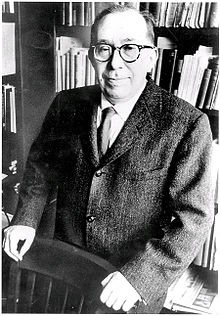

 del.icio.us
del.icio.us
 Digg
Digg
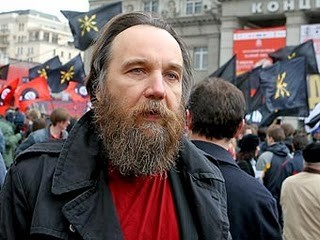

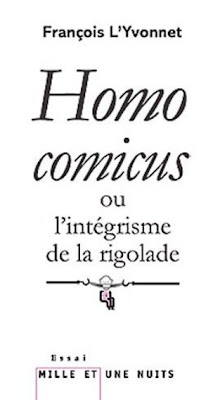
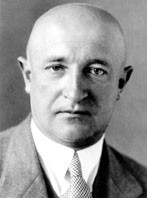
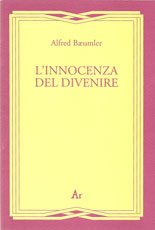 Ora questi scritti di Baeumler vengono riuniti e pubblicati dalle Edizioni di Ar sotto il titolo L’innocenza del divenire, in un’edizione di alto valore filologico e documentale, ma soprattutto filosofico e storico-politico. Un evento culturale più unico che raro nel panorama dell’editoria colta italiana, così spesso dedita alle rimasticature piuttosto che allo scientifico lavoro di scavo in profondità.
Ora questi scritti di Baeumler vengono riuniti e pubblicati dalle Edizioni di Ar sotto il titolo L’innocenza del divenire, in un’edizione di alto valore filologico e documentale, ma soprattutto filosofico e storico-politico. Un evento culturale più unico che raro nel panorama dell’editoria colta italiana, così spesso dedita alle rimasticature piuttosto che allo scientifico lavoro di scavo in profondità.




 Ernst Jünger says in his acceptance speech for the prestigious Goethe prize in 1982, "I've had the experience that one meets the best comrades in no-man's-land. I've always been pleased with my troops (Mannschaft) in war and my readership in peace. A hand that holds a weapon with honor, holds a pen with honor. It is stronger than any atom bomb, or any rotary press." With these words Jünger bestows an honour on us, his readership. He equates us with his comrades-in-arms in times of peace, but is it a wonder after all? If you are a reader of Ernst Jünger, you must be in either one of two camps, those who consider his opus with genuine admiration or the detractors, those sceptics, "whose contribution does not equal to one blade of grass, one mosquito wing".
Ernst Jünger says in his acceptance speech for the prestigious Goethe prize in 1982, "I've had the experience that one meets the best comrades in no-man's-land. I've always been pleased with my troops (Mannschaft) in war and my readership in peace. A hand that holds a weapon with honor, holds a pen with honor. It is stronger than any atom bomb, or any rotary press." With these words Jünger bestows an honour on us, his readership. He equates us with his comrades-in-arms in times of peace, but is it a wonder after all? If you are a reader of Ernst Jünger, you must be in either one of two camps, those who consider his opus with genuine admiration or the detractors, those sceptics, "whose contribution does not equal to one blade of grass, one mosquito wing". 
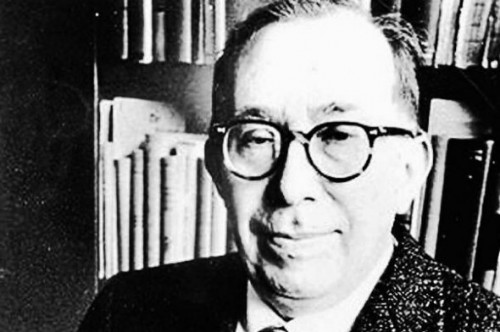

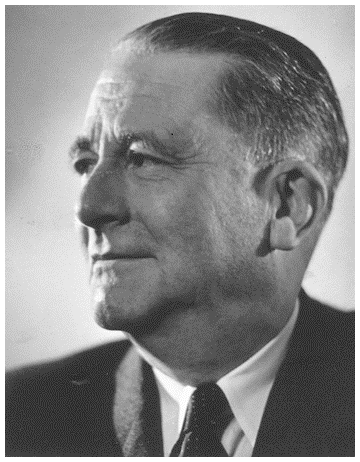


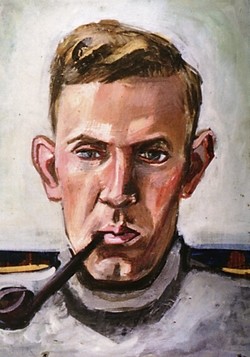 O “mito”, como a “representação de uma batalha”, surge espontaneamente e exerce um efeito mobilizador sobre as massas, incute-lhes uma “fé” e torna-as capazes de actos heróicos, funda uma nova ética: essas são as pedras angulares do pensamento de Georges Sorel (1847-1922). Este teórico político, pelos seus artigos e pelos seus livros, publicados antes da primeira guerra mundial, exerceu uma influência perturbante tanto sobre os socialistas como sobre os nacionalistas.
O “mito”, como a “representação de uma batalha”, surge espontaneamente e exerce um efeito mobilizador sobre as massas, incute-lhes uma “fé” e torna-as capazes de actos heróicos, funda uma nova ética: essas são as pedras angulares do pensamento de Georges Sorel (1847-1922). Este teórico político, pelos seus artigos e pelos seus livros, publicados antes da primeira guerra mundial, exerceu uma influência perturbante tanto sobre os socialistas como sobre os nacionalistas.


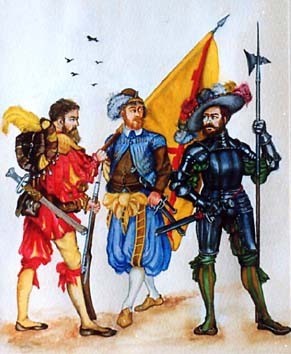 Voor hen die goede redenen hadden om de collaboratie te bevechten, was deze verwerpelijk. Het heeft de collaboratie inderdaad niet aan verfoeibare aspecten ontbroken. Niettemin hebben zich zowel aan Franse als aan Duitse zijde mensen in eer en geweten ingezet voor deze weg, waarvan zij dachten dat hij de juiste was, en die achteraf door de geschiedenis werd veroordeeld.
Voor hen die goede redenen hadden om de collaboratie te bevechten, was deze verwerpelijk. Het heeft de collaboratie inderdaad niet aan verfoeibare aspecten ontbroken. Niettemin hebben zich zowel aan Franse als aan Duitse zijde mensen in eer en geweten ingezet voor deze weg, waarvan zij dachten dat hij de juiste was, en die achteraf door de geschiedenis werd veroordeeld.